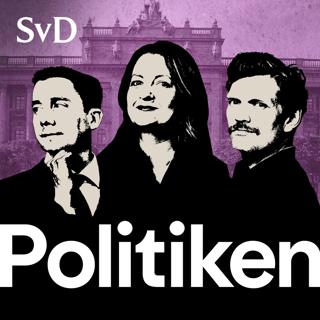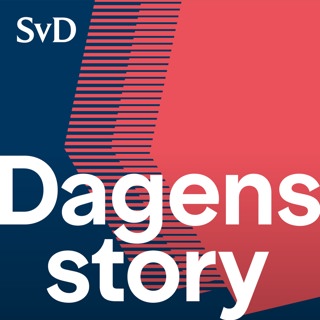
Mega Edition: Transcripts From The DOJ's Sit Down With Ghislaine Maxwell (Part 7-9) (12/30/25)
On August 22, 2025, the U.S. Department of Justice released redacted transcripts and audio recordings of a two-day interview it conducted in July with Ghislaine Maxwell, who is serving a 20-year federal prison sentence for her role in Jeffrey Epstein’s sex-trafficking ring. During the interview, Maxwell denied ever seeing any inappropriate behavior by former President Donald Trump, describing him as a “gentleman in all respects,” and insisted she “never witnessed the president in any inappropriate setting in any way.” She also rejected the existence of a so-called “client list,” countering years of speculation, and claimed to have no knowledge of blackmail or illicit recordings tied to Epstein.In addition to defending high-profile figures, Maxwell expressed doubt that Epstein’s death was a suicide, while also rejecting the notion of an elaborate conspiracy or murder plot. The release of the transcripts—handled under the Trump-era Justice Department—has stirred sharp political debate. Trump allies have framed her remarks as vindication, while critics and Epstein’s survivors question her credibility, pointing to her conviction and suggesting her words may be aimed at influencing potential clemency or political favor.to contact me:bobbycapucci@protonmail.comsource:Interview Transcript - Maxwell 2025.07.24 (Redacted).pdfBecome a supporter of this podcast: https://www.spreaker.com/podcast/the-moscow-murders-and-more--5852883/support.
31 Dec 202540min

The DOJ Admits "Mistakes" Were Made When It Comes To Epstein Survivors Rights
In 2020, the U.S. Department of Justice publicly acknowledged that it had made “mistakes” in its handling of Jeffrey Epstein’s survivors, particularly in connection with the 2007–2008 non-prosecution agreement in Florida. Federal officials conceded that prosecutors failed to properly notify victims about the deal and misled them about the status of the case, violations that ran afoul of the Crime Victims’ Rights Act. The admission followed years of litigation brought by survivors who argued they were deliberately kept in the dark while Epstein secured an extraordinary plea agreement that shielded him from federal prosecution at the time.The DOJ’s acknowledgment came after a federal judge ruled that prosecutors had indeed violated victims’ rights, forcing the department to publicly reckon with its conduct. While officials expressed regret and described the failures as institutional errors, the admission stopped short of disciplinary action against those involved or a broader accounting of how the deal was approved. For survivors and their advocates, the statement underscored a painful reality: that the justice system not only failed to stop Epstein earlier, but also compounded the harm by excluding victims from decisions that directly affected their safety and legal rights.to contact me:bobbycapucci@protonmail.comBecome a supporter of this podcast: https://www.spreaker.com/podcast/the-moscow-murders-and-more--5852883/support.
31 Dec 202530min

Ghislaine Maxwell And The Failed NPA Defense
Ghislaine Maxwell repeatedly pointed to Jeffrey Epstein’s 2007–2008 non-prosecution agreement (NPA) as a shield against her own criminal exposure, arguing that the deal’s language was broad enough to insulate not just Epstein, but those who allegedly assisted him. Her defense leaned heavily on the clause that purported to cover unnamed “co-conspirators,” claiming that federal prosecutors had already bargained away the government’s ability to charge her years later. By framing the NPA as a sweeping, binding promise, Maxwell attempted to recast herself as a beneficiary of Epstein’s deal—despite not being a signatory and despite the agreement being negotiated without victims’ meaningful input.Courts ultimately rejected that strategy, finding that the NPA did not grant Maxwell immunity and could not be stretched to function as a blanket pardon for future defendants. Judges emphasized that the agreement bound only the parties who signed it, applied to a specific jurisdiction, and did not override later federal prosecutions based on independently gathered evidence. In effect, Maxwell’s reliance on the NPA backfired: it highlighted how aggressively Epstein’s deal had been used to suppress accountability, while underscoring that she was trying to inherit protections never legally hers. The failure of that argument reinforced a central point of her case—that Epstein’s extraordinary deal distorted justice—but it did not save her from facing charges herself.to contact me:bobbycapucci@protonmail.comBecome a supporter of this podcast: https://www.spreaker.com/podcast/the-moscow-murders-and-more--5852883/support.
31 Dec 202511min

Leon Black Gets One Of His Epstein Related Counter Suits Dismissed With Prejudice
A federal judge dismissed with prejudice one of the countersuits filed by Leon Black against an Epstein accuser, ruling that the claims failed as a matter of law and could not be refiled. Black had sought to strike back at allegations tied to his financial relationship with Jeffrey Epstein by asserting claims that included defamation and related theories. The court found that the countersuit did not meet the required legal standards, concluding that the pleadings were insufficient and that the case could not be salvaged through amendment.The dismissal marked a decisive setback for Black’s offensive legal strategy, narrowing the battlefield to the accuser’s claims while foreclosing one avenue of counterattack. Legal analysts noted that a dismissal with prejudice is a strong rebuke, signaling the court’s determination that the countersuit lacked a viable legal foundation. While the ruling did not resolve the underlying allegations against Black, it removed a key pressure tactic from the case and underscored the judiciary’s reluctance to entertain retaliatory claims that do not clear high evidentiary and pleading thresholds in Epstein-adjacent litigation.to contact me:bobbycapucci@protonmail.comBecome a supporter of this podcast: https://www.spreaker.com/podcast/the-moscow-murders-and-more--5852883/support.
31 Dec 202515min

The Players On The Stage In Palm Beach Who Helped Facilitate Epstein's Deal
The Non-Prosecution Agreement (NPA) involving Jeffrey Epstein was a controversial legal arrangement reached in 2007 between Epstein, a wealthy financier, and the United States Attorney's Office for the Southern District of Florida. The agreement was overseen by the DOJ.The Non-Prosecution Agreement (NPA) involving Jeffrey Epstein was a controversial legal arrangement reached in 2007 between Epstein, a wealthy financier, and the United States Attorney's Office for the Southern District of Florida. The agreement was overseen by then-U.S. Attorney Alexander Acosta, who later became the U.S. Secretary of Labor under President Donald Trump.The NPA came about as Epstein faced allegations of sexually abusing underage girls. It allowed him to plead guilty to two state prostitution charges, serving just 13 months in a county jail with work release privileges. In exchange, federal charges against him were dropped, and the agreement granted immunity not only to Epstein but also to any potential co-conspirators.The secrecy surrounding the NPA and the leniency of the sentence sparked outrage and accusations of preferential treatment due to Epstein's wealth and connections. Critics argued that the deal was unjust and failed to adequately address the gravity of Epstein's crimes or provide justice for his victims.In the years following the NPA, Epstein continued to face legal scrutiny and accusations of sexual abuse. However, the agreement insulated him from federal prosecution for the crimes covered in the deal until his arrest in July 2019 on new federal charges of sex trafficking minors. Epstein died by suicide in his jail cell a month later, while awaiting trial.In this episode, we take a trip back down to Palm Beach for a crash course on some of the main players on the stage when Jeffrey Epstein was given his once in a lifetime deal.(commercial at 11:03)to contact me:bobbycapucci@protonmail.comsource:Jeffrey Epstein: Players in early prosecution in Palm Beach County (palmbeachpost.com)Become a supporter of this podcast: https://www.spreaker.com/podcast/the-moscow-murders-and-more--5852883/support.
30 Dec 202517min

Donald Trump Allegedly Snaps at Marjorie Taylor Greene for Calling Out Epstein Ties (12/30/25)
In recent remarks, Marjorie Taylor Greene publicly broke with Donald Trump over his handling of the Jeffrey Epstein story, arguing that his instinct to deflect, downplay, or redirect attention away from powerful associates only fuels suspicion. Greene said that continuing to frame Epstein as a partisan issue or a “hoax” while attacking critics undermines legitimate questions about who protected Epstein and why. She emphasized that transparency—rather than dismissal—is the only way to resolve lingering doubts and restore public trust.Greene went further by warning that Trump’s approach risks embarrassing his own circle, suggesting that reflexively defending or shielding well-connected figures makes the situation worse, not better. By implying that some of Trump’s friends and associates could be implicated by continued secrecy, she positioned herself as advocating a clean break: release records, stop minimizing the issue, and let accountability fall where it may. Her comments marked a notable moment of intraparty tension, highlighting frustration among some Republicans who believe that avoiding the Epstein facts damages credibility and keeps the controversy alive.to contact me:bobbycapucci@protonmail.comsource:MTG Says Trump Yelled 'My Friends Will Get Hurt' at Her When She Demanded Epstein TransparencyBecome a supporter of this podcast: https://www.spreaker.com/podcast/the-moscow-murders-and-more--5852883/support.
30 Dec 202522min

Epstein Files Unsealed: The DOJ And The Epstein 2007 Florida Grand Jury Transcripts (Part 2)(12/30/25)
The grand jury transcripts from Operation Leap Year, convened in West Palm Beach in 2007, reveal a federal investigation into Jeffrey Epstein that was far broader and more aggressive than the charges that ultimately emerged. Testimony before the grand jury laid out evidence suggesting a coordinated, multi-victim sex-trafficking scheme involving interstate conduct, recruitment of minors, and the use of intermediaries to facilitate abuse. Witnesses described a consistent pattern: underage girls being recruited, transported, and paid, with corroboration from victims, law enforcement, and supporting records. The scope reflected in the transcripts indicates prosecutors were examining serious federal felonies—far beyond the narrow state solicitation counts that Epstein later pleaded to.What makes the transcripts especially significant is what happened next. Despite the gravity and breadth of evidence presented, the federal case was quietly shelved, and the investigation was effectively abandoned without a public accounting. The records underscore how the Department of Justice had a viable path to indict Epstein federally in 2007, a move that could have halted his abuse years earlier. Instead, the grand jury’s work was sealed, the investigation dissolved, and Epstein was routed into an unusually lenient state resolution. In hindsight, Operation Leap Year stands as documentary proof that the failure to prosecute was not due to lack of evidence—but to a decision to walk away from a fully developed federal case.to contact me:bobbycapucci@protonmail.comsource:EFTA00009632.pdfBecome a supporter of this podcast: https://www.spreaker.com/podcast/the-moscow-murders-and-more--5852883/support.
30 Dec 202511min

Epstein Files Unsealed: The DOJ And The Epstein 2007 Florida Grand Jury Transcripts (Part 1)(12/30/25)
The grand jury transcripts from Operation Leap Year, convened in West Palm Beach in 2007, reveal a federal investigation into Jeffrey Epstein that was far broader and more aggressive than the charges that ultimately emerged. Testimony before the grand jury laid out evidence suggesting a coordinated, multi-victim sex-trafficking scheme involving interstate conduct, recruitment of minors, and the use of intermediaries to facilitate abuse. Witnesses described a consistent pattern: underage girls being recruited, transported, and paid, with corroboration from victims, law enforcement, and supporting records. The scope reflected in the transcripts indicates prosecutors were examining serious federal felonies—far beyond the narrow state solicitation counts that Epstein later pleaded to.What makes the transcripts especially significant is what happened next. Despite the gravity and breadth of evidence presented, the federal case was quietly shelved, and the investigation was effectively abandoned without a public accounting. The records underscore how the Department of Justice had a viable path to indict Epstein federally in 2007, a move that could have halted his abuse years earlier. Instead, the grand jury’s work was sealed, the investigation dissolved, and Epstein was routed into an unusually lenient state resolution. In hindsight, Operation Leap Year stands as documentary proof that the failure to prosecute was not due to lack of evidence—but to a decision to walk away from a fully developed federal case.to contact me:bobbycapucci@protonmail.comsource:EFTA00009632.pdfBecome a supporter of this podcast: https://www.spreaker.com/podcast/the-moscow-murders-and-more--5852883/support.
30 Dec 202511min





















